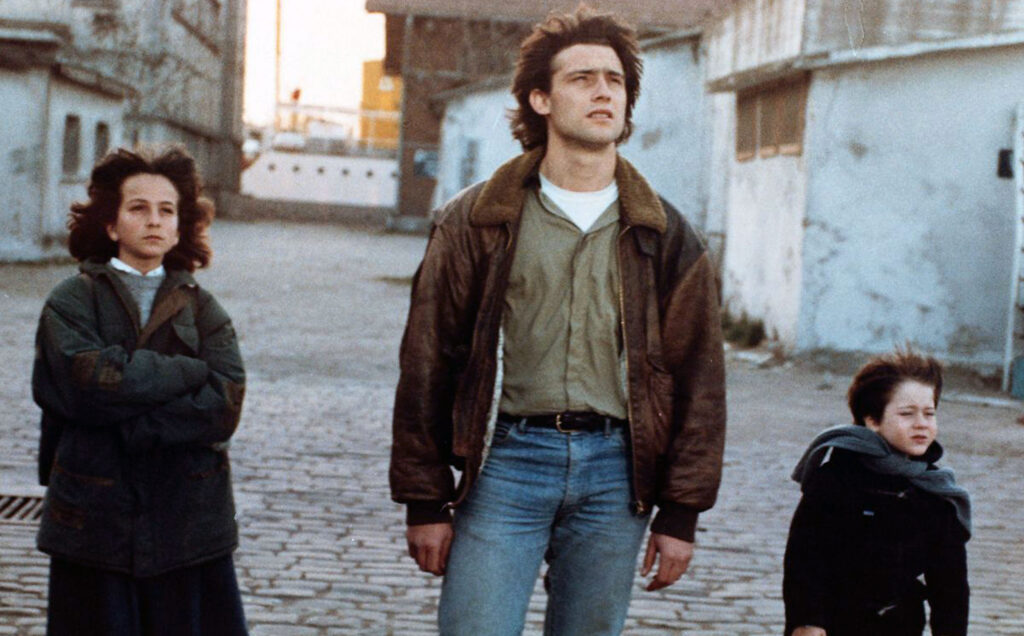In Theo Angelopoulos’ “Landscape in the Mist,” two kids run away from their Athens home in search for their father whom they were told lives in Germany. But beneath the surface, this film is about so much more. Their journey is an allegory for life itself, how we all travel through time in search of something that may not even be there.
Everything goes by so fast: the cities we visit, the strangers we meet, painful chapters and joyful occurrences. At one point, a traveler looks at the kids, smiles and utters words that ring so true for each and every one of us.
“You’re funny kids, you know that? It’s as if you don’t care about time passing, yet I know that you are in a hurry to leave. It’s as if you’re going nowhere, and yet you’re going somewhere … Me? I’m a snail slithering away into nothingness. I don’t know where I’m going. Once I thought I knew.”
We’re all aware of time passing, yet we pretend that we have all the time in the world. In a way, we’re all clueless kids traveling in a chaotic odyssey through time. We think we know where we’re going, but we really don’t. We’re all searching for different things, yet ultimately, we’re looking for the same things, closure, wholeness, a sense of fulfillment. Everything seems like it’s within reach yet completely unattainable.
Will we ultimately reach our destination? Or will everything we long for forever remain a landscape in the mist? “Landscape in the Mist” transcends the medium with poetic lyricism that is rarely matched by any work of art.
Angelopoulos sets up this quest for spiritual enlightenment with a delicate opening shot that is as poetic as any I’ve ever seen. The screen is completely dark. All we can hear is the gentle voice of Voula as she tells her five-year-old brother, Alexander, a tale she has told many times before. “In the beginning, there was chaos and then there was light. And the light was separated from the darkness and the earth from the sea, and the rivers, the lakes, and the mountains were made. And then, the flowers and the trees, the animals, the birds.”
We then hear footsteps approaching, but we are still in complete darkness. The door opens slightly, and we see a beam of light creeping into the dark revealing the children pretending to be asleep in bed. It becomes clear to the viewer that Angelopoulos is illustrating Voula’s fairytale with nothing but light and shadow. This is what cinema is all about, filmmakers bringing words to life by painting with light. Angelopoulos encapsulates the very essence of the entire medium of film within the first few moments of his masterpiece.
“Landscape in the Mist” is filled with many breathtaking episodes that work as standalone moments in time. But these anecdotes are also part of a beautiful whole. As with life, we are always entering one moment as we are about to leave another. And each moment is as aesthetically rich as the one before. I found myself pausing the film at several moments just to soak in all the beauty. It is so sad that everything that is beautiful eventually has to fade away to become a thing of the past. The reason we treasure moments of happiness is because we know they are not permanent, and they are in a kind of transition.
This sentiment is captured in a wonderful scene that comes shortly after one of the film’s more painful chapters. After a moment of great suffering, we bump into the only truly kind character in the film, Orestis. We see the two children riding on his motorbike, and as they are speeding towards the beach, he asks: “Are you scared?” To which Voula replies, “No! I don’t want it to ever end.” After witnessing this poor child go through hell, this brief moment of joy becomes all that matters in the world.
“Landscape in the Mist” is a work of art that comes from the feelings, dreams, sorrows, and flashes of life that we experience every day. And it is all stitched together by the haunting melancholic score composed by the great Eleni Karaindrou. This contemplative film is layered, complex, challenging and rewarding. I find myself thinking about these children time and time again as I go through my own journey in life. It is filled with immense wisdom and unforgettable imagery. The last shot in particular reaches a crescendo of beauty that is so operatic, once seen it will never be forgotten.











